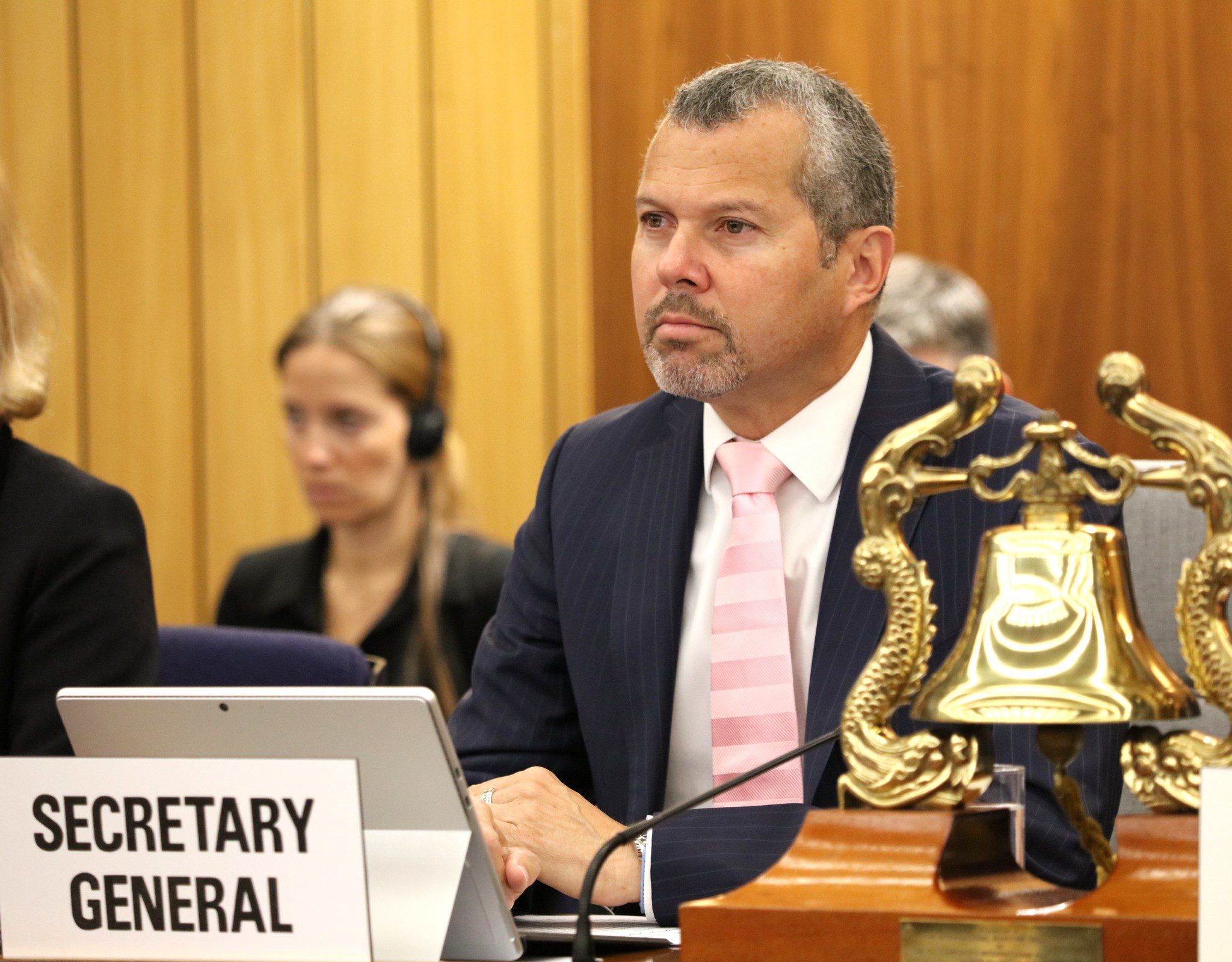U.S. Congressman Ed Case (D-HI) has called for an advance waiver from the Jones Act and military cargo preference requirements to expedite the Department of Defense’s (DoD) defueling of the Red Hill Bulk Fuel Storage Facility at Joint Base Pearl Harbor-Hickam, Hawaii.
In a letter to U.S. Secretary of Homeland Security Alejandro Mayorkas, Case emphasized the need for waivers to “assure full, dependable, and cost-effective availability” of the ten oceangoing fuel tankers required under the DoD’s proposed defueling plan.
As part of the proposed defueling process, over one hundred million gallons of bulk fuel stored in the Red Hill tanks must be removed and distributed to other storage facilities under a plan supervised by the Environmental Protection Agency and Hawaii Department of Health. The current plan calls for ten oil tankers to ship the fuel from a pier at Joint Base Pearl Harbor-Hickam to various points, ranging in distance from ten miles away at Kalaeloa to various replacement storage sites thousands of miles overseas.
Case stressed that a series of highly organized and sequenced events is critical to the plan, which must achieve not only the safe and efficient removal of the fuel but also maintain military operational tempo and readiness in Hawaii and beyond. The plan anticipates some twelve consecutive weeks of full utilization of ten oceangoing petroleum storage tankers, with each tanker contracted in advance on a time-chartered basis.
Watch: Hawaii Naval Bunker Tank Closure And The Jones Act Explained
Under existing law, these tanker movements are subject to Jones Act requirements, which mandate that cargo between U.S. locations be transported on ships built and flagged in the U.S. Additionally, these movements are further subject to government-impelled cargo requirements for overseas movements.
Case argued that Jones Act ships are functionally unavailable and prohibitively expensive, given the very limited number of fuel tankers in the Jones Act fleet, which are fully committed elsewhere. Furthermore, requirements on government-impelled cargo, if and to the extent available for a committed and predictable period, are administratively complicated and prohibitively expensive.
According to Case, assuming each committed charter availability for ten total tankers at ninety days, the total cost for all service by international shipping would be about $36 million, versus about $66 million for cargo preference plus Jones Act tankers (assuming just one Jones Act tanker). Case argued that it is critical to DoD and the people of Hawaii that an advance waiver from the Jones Act and government-impelled cargo requirement be issued to provide DoD with the fullest possible range of options to contract internationally available fuel tanker transport on a predictable and cost-effective basis.
The Red Hill Bulk Fuel Storage Facility at Joint Base Pearl Harbor-Hickam in Honolulu, Hawaii is a DoD 200-million gallon capacity bulk fuel storage facility located just one hundred feet over the principal aquifer for the City and County of Honolulu. In November 2021, Red Hill sustained a major leak, polluting the aquifer, sickening residents and dislocating tens of thousands of people from their homes. As a result, U.S. Secretary of Defense Lloyd Austin, at the strong urging of Hawaii’s Congressional delegation and residents, committed DoD to the safe and expedited defueling, closure and decommissioning of Red Hill’s 18 operational underground fuel storage tanks.
To date, over $2 billion has been directly appropriated to the mission.
This latest Jones Act waiver request is not the first from Case. In 2021 he re-introduced a bill to reform the Jones Act to exempt Hawaii and all noncontiguous U.S. locations from the law’s requirements, blaming the Jones Act for “artificially inflating the cost of shipping goods to Hawaii.”
In 2022, he called on President Biden to waive the Jones Act for oil and petroleum products from mainland U.S. ports to Hawaii to facilitate the replacement of oil imports from Russia following its invasion of Ukraine.

 Join The Club
Join The Club











